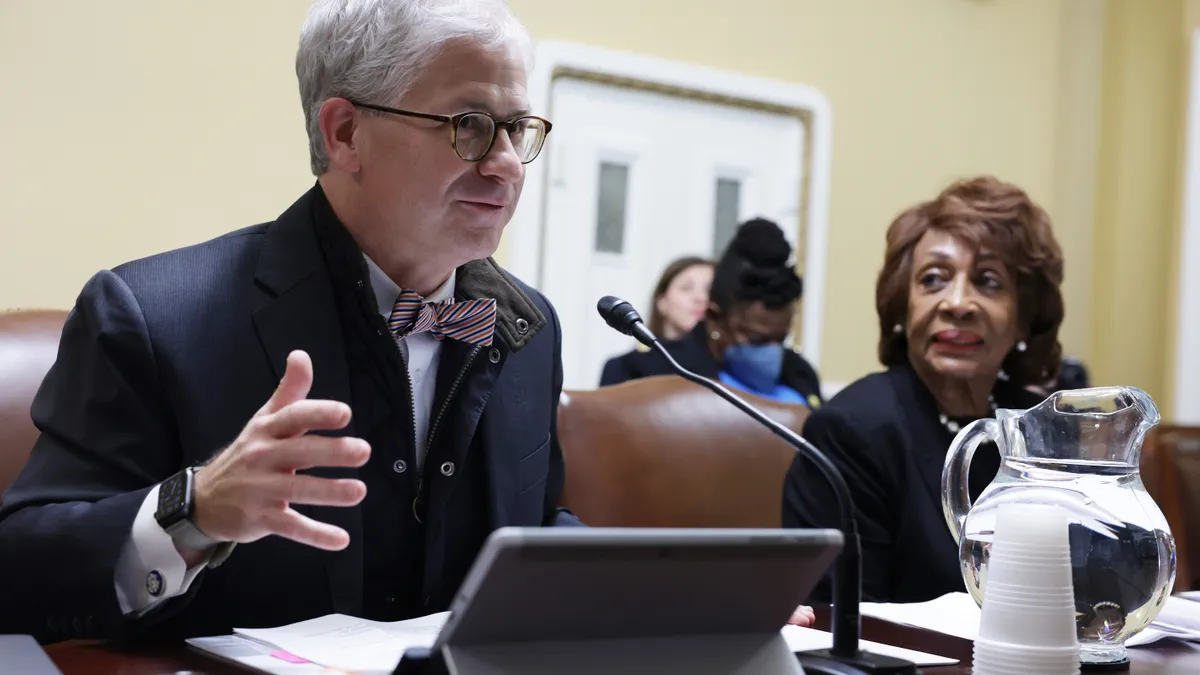Democratic and Republican lawmakers appeared to inch closer to advancing stablecoin legislation during a Congressional subcommittee hearing last week.
Although multiple members of the House Financial Services Subcommittee on Digital Assets, Financial Technology and Inclusion expressed a desire to work together and see a stablecoin bill become law, legislators differed on which draft lays the proper framework for needed stablecoin regulation. A stablecoin refers to a digital currency whose value is pegged to an asset such as the U.S. dollar.
One version of the legislation, sponsored by Rep. Patrick McHenry (R-NC), puts more power in the hands of states, enabling stablecoin issuers to receive licensing at the state level. Another version of the legislation, proposed by Rep. Maxine Waters (D-CA), gives more responsibility to the Federal Reserve, affording it the ability to deny registration of a stablecoin issuer approved at the state level.
McHenry and Waters have been seeking common ground on stablecoin and cryptocurrency legislation for months.
Ultimately, bringing legal clarity and consumer protection to the stablecoin ecosystem is the goal, subcommittee Chairman French Hill (R-AR) said during the May 18 hearing, which had a this heading: “Putting the ‘Stable’ in ‘Stablecoins:’ How Legislation Will Help Stablecoins Achieve Their Promise.”
“We want for payment stablecoins to be used as a payments mechanism, which they’re really not today,” Hill said. “The only way we can do that is by passing the appropriate regulatory framework legislation.”
Hill noted similarities between the proposals are “strong,” suggesting lawmakers aren’t far apart on the issue. Among those similarities is consumer protection, which Delicia Reynolds Hand, director of financial fairness for Consumer Reports, urged lawmakers to prioritize during her testimony.
Committee members also repeatedly expressed desires to see stablecoin legislation advance so stablecoin innovation occurs within the U.S. and the dollar remains dominant on the global stage.
Matt Homer, managing member of venture capital firm The Department of XYZ, testified that the world wants U.S. dollar-denominated stablecoins. He argued that stablecoins, in some ways, aren’t so different from stored-value products such as gift cards or prepaid cards.
“A common refrain heard from critics of crypto in Congress is that crypto has no use case,” said Rep. Ritchie Torres (D-NY). “But it seems to me blockchain enables real-time transactions, stablecoin tokenizes the dollar, and the ability of a tokenized dollar to move at the speed of the blockchain creates a better, cheaper and faster payments system, which would include the potential for better, cheaper and faster remittances for the lowest income Americans.”
That’s “a very fair assessment, and we’re already seeing that happen,” Homer said.
In the wake of recent high-profile banking collapses, legislators need to act on a regulatory framework before a run on stablecoins could occur, “before the risks grow larger and scale makes that change more difficult,” hearing witness David Portilla, a partner at law firm Davis Polk & Wardwell told lawmakers.
“It’s clear that we need to ensure that future legislation addresses the cracks that have deepened,” following recent bank failures, said Rep. Stephen Lynch (D-MA).











